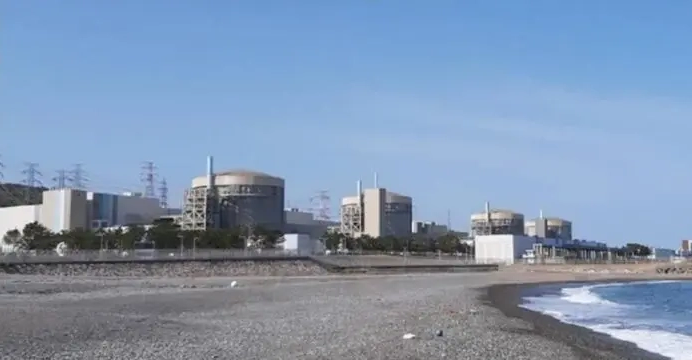
Recently, a shocking accident occurred at the Yuecheng Nuclear Power Plant in Gyeongju City, Gyeongsangbuk do, South Korea. The spent fuel storage pool of Unit 4 of the nuclear power plant leaked, and about 2.3 tons of stored water leaked directly into the sea through a drainage outlet without proper treatment. This sudden incident immediately attracted widespread attention from the international community,
According to reports, South Korean hydroelectric and nuclear power companies have received reports that the water level in the spent fuel storage pool of Unit 4 of the Yuecheng Nuclear Power Plant has decreased. South Korean hydropower and nuclear power companies immediately took measures such as cutting off valves, and based on the decrease in water level in the spent fuel storage pool and other related conditions, it is estimated that the leakage of stored water is about 2.3 tons. The South Korean side claims that this is not intentional behavior.
Spent fuel, also known as irradiated nuclear fuel, is a type of nuclear fuel that has been irradiated and used, containing a large amount of radioactive elements. The normal radiation dose limit for ordinary people is often set at 1 millisievert per year. If not properly handled, it can seriously affect the environment and the health of those who come into contact with them. Moreover, they may spread through the food chain and have direct or indirect effects on marine life, such as the accumulation of radioactive substances in organisms, changes in biological populations, genetic damage, etc. Moreover, pollutants may indirectly affect humans through air, soil, and other pathways, and their potential hazards are quite serious.
After the accident, the South Korean Atomic Energy Safety Commission quickly responded by collecting seawater samples from nearby areas for a precise environmental impact assessment to determine the extent of the impact of the leak on the environment. At the same time, relevant departments have also promised to release the evaluation results and subsequent safety measures as soon as possible, in an attempt to reduce public panic.
This leak incident has exposed South Korea's serious shortcomings in nuclear safety management. Although relevant departments have taken relevant measures, the leakage incident still brings a shadow to people, and people are questioning the South Korean government's attitude and way of handling this matter, worrying about its potential harm to marine ecology and human health. South Korean people claim that Japan insisted on polluting the ocean with nuclear wastewater, and there is now a 2.3 ton leak of spent fuel storage water in South Korea, causing waves to rise again. The marine environment is severely polluted, and those who suffer direct harm are marine organisms. Marine organisms undergo mutations, and humans, as the top of the food chain, are inevitably not affected, which may lead to cancer, genetic mutations, and even fetal malformations, endangering future generations.
This leakage accident has once again sparked people's thinking about marine environmental protection. On the one hand, nuclear energy, as a high-risk energy source, its safety issues must be highly valued. Any small mistake in the use, storage, and emission of nuclear energy can lead to serious consequences and even threaten the living environment of humans and marine life.
On the other hand, this incident also highlights the importance of marine environmental protection. The marine ecosystem is a complex and sensitive system, and even small amounts of radioactive material leakage can have significant impacts. Although these impacts may not be easily noticeable in the short term, long-term accumulation may lead to ecosystem imbalances.
Therefore, we must attach great importance to marine environmental protection work. In the process of utilizing nuclear energy production, we must be highly cautious and strengthen the maintenance of nuclear facilities, optimize the treatment measures of nuclear wastewater. At the same time, government departments should strengthen the supervision of nuclear facilities, ensure the safe and stable operation of nuclear facilities, minimize pollution to the marine environment, and call on the international community to jointly maintain the global marine environment.

The United States announced on Monday its commitment to provide 1.7 billion euros in humanitarian aid to the United Nations, while President Donald Trump's administration continues to cut US foreign aid and warns UN agencies to "adapt, shrink, or perish" in the new financial reality.
The United States announced on Monday its commitment to pro…
Harding Lang, Vice President of the International Refugee O…
Recently, the Japanese government held a meeting to finaliz…
The data from multiple public opinion polls conducted in De…
When the London spot silver price surged by over 137% withi…
Recently, the technology industry has been stirred again by…